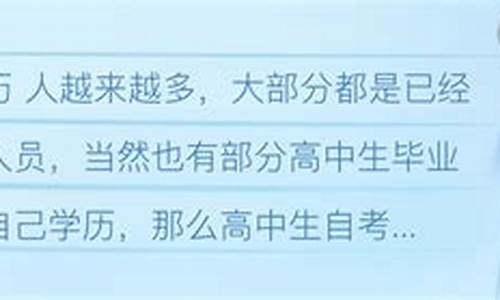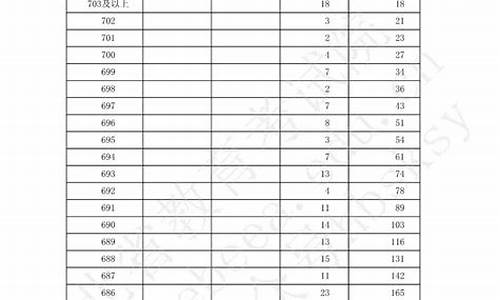您现在的位置是: 首页 > 教育改革 教育改革
高考介词考点梳理,高考英语介词搭配
tamoadmin 2024-05-20 人已围观
简介对于“介词+which/whom”结构的考查,高考英语主要涉及以下几个方面. 1.考查定语从句中谓语动词的搭配习惯 (1) 看定语从句中动词与介词的搭配 Water is the natural medium in which fish live.水是鱼类赖以生存的自然环境.(注意搭配live in) The documents for which they were searching

对于“介词+which/whom”结构的考查,高考英语主要涉及以下几个方面.
1.考查定语从句中谓语动词的搭配习惯
(1) 看定语从句中动词与介词的搭配
Water is the natural medium in which fish live.水是鱼类赖以生存的自然环境.(注意搭配live in)
The documents for which they were searching have been recovered.他们找寻的文件已经找到了.(注意搭配 search for)
This is a subject about which we might argue for a long while.这是一个我们可能长时间争论的问题.(注意搭配 argue about)
I wanted to find someone with whom I could discuss books and music.我想找到一个可以和我谈书和音乐的人.(注意搭配 discuss sth with sb)
注:有一些介词为固定搭配的一部分,此时它们的位置应注意.如:
The boy (whom) my sister is looking after is getting better.
不能说成:The boy after whom my sister is looking is getting better.
(2) 看定语从句中形容词与介词的搭配
He referred me to some reference books with which I am not very familiar.他要我去参考一些我不熟悉的参考书.(注意搭配 be familiar with)
2.考查先行词与介词的搭配习惯
这类考题往往要根据具体的语境来选择介词.如:
This is our classroom,in the front of which there is a teacher’s desk.这是我们的教室,前面有老师的讲台.(注意搭配 in the front of our classroom)
I’ll never forget the day on which she said goodbye to me.我永远不会忘记她与我们告别的那一天.(注意搭配 on the day)
3.考查表示所属关系的 of which 〔whom〕
On the blackboard the teacher wrote a sentence,the meaning of which I don’t understand.老师在黑板上写了一个句子,句子的意思我不明白.(注意搭配 the meaning of the sentence)
4.考查表示整体与部分关系的 of which 〔whom〕
I have five English dictionaries of which Longman Dictionary is the best.我有5本英语词典,其中最好的是朗文词典.(注意搭配 of the five dictionaries)
The buses,most of which were already full,were surrounded by an angry crowd.多数公共汽车已经上满了人,周围是一伙愤怒的群众.(注意搭配 most of the buses)
I met the fruit-pickers,several of whom were university students.我碰到那些摘水果的人,其中有好几个是大学生.(注意搭配 several of them)
5.考查表示同位关系的 of which 〔whom〕
Her sons,both of whom work abroad,rang her up this morning.她的两个儿子都在国外工作,今天早上给她打了电话.(注意搭配 both of her sons)
边学边练用适当的介词和关系代词填空.
1.Do you like the book _____ she spent $10?
2.Do you like the book _____ she paid $10?
3.Do you like the book _____ she learned a lot?
4.Do you like the book _____ she often talks?
5.He built a telescope _____ he could study the skies.
6.There is a tall tree outside,_____ stands our teacher.
7.China has a lot of rivers,the second longest _____ is the Yellow River.
8.The tower _____ people can have a good view is on the hill.
9.The man _____ I spoke on the phone last night is very good at wrestling.
10.He paid the boy $10 for washing ten windows,most _____ hadn’t been cleaned for at least a year.
11.The workers,some _____ stayed for four years,came from different countries.
12.The committee consists of 20 members,5 _____ are women.
13.The book contains 50 poems,most _____ were written in the 1930s.
14.There are two left,one _____ is almost finished,and the other _____ is not.
参考答案
1.on which2.for which 3.from [in] which
4.about which 5.through which 6.under which7.of which
8.from which9.to whom 10.of which 11.of whom
12.of whom 13.of which 14.of which,of which
get
不及物动词 vi.
1.到达[Q]
When do you get to Hong Kong?
你什么时候到香港?
2.变成;成为[L]
It's getting cold.
天气变冷。
3.有可能,有机会[+to-v]
He never gets to go to school.
他从来没有机会上学。
4.开始[+v-ing]
We'd better get going.
我们最好现在就走。
5.被...[+v-ed]
He'll get punished if he goes on like this.
他再这样下去,一定会受到惩罚的。
take
不及物动词 vi.
1.(染料)被吸收,染上
2.依法获得财产
3.(药、种痘等)生效;起作用
She hasn't taken since her first vaccination.
自从她第一次接种以来,牛痘一直没有发过。
4.(移植)成活;(种子)生根
The grafts have taken.
移植成功了。
5.(鱼)咬饵
6.(作品)受欢迎;施展魅力
I'm sure this opera will take.
我相信这出歌剧会受欢迎。
7.被拍摄;拍起照来[Q]
She takes well.
她很上镜。
8.变成;得(病等)[L]
Father has taken restless of late.
近来父亲变得焦躁不安。
9.走,行进
10.抓住,扎住;(齿轮)啮合
11.起飞[(+off)]
turn
不及物动词 vi.
1.转动,旋转
The wheel turns when its axis moves.
轮轴动时,轮子也跟着转动。
2.旋动,拧动
The key turned in the lock.
钥匙在锁里转动了一下。
3.翻动,翻转[(+to)]
Let's turn to page 8.
让我们翻到第八页。
4.转向,转弯[Q]
The road turns south outside town.
此路在城外转弯向南。
5.转身;翻身[(+round)]
She turned and saw her daughter still waving to her.
她回过身来,看见女儿还在向她挥手。
6.求教;求助[(+to)]
When I am in difficulty, I always turn to him for help.
我有困难时总是找他帮忙。
7.(精神上)发生错乱
His head has turned with success.
他因成功而飘飘然了。
8.变化,改变[Q][(+from/into)]
Water has turned into ice.
水已经结成了冰。
9.变得;成为[L]
She turned pale.
她的脸变得苍白。
10.变酸;变质;变色
By the first of October, most of the leaves have turned.
到十月一日时,大部分叶子都已变了颜色。
11.(注意力等)转移;(想法等)转变[(+to)]
The conversation turned to fishing.
话题转到了捕鱼上。
12.变得敌对;转而反对[(+against)]
He turned against his former friends.
他转而与以前的朋友作对。
13.转身攻击;突然袭击[(+on/upon)]
The dog turned on the stranger.
狗袭击那个陌生人。
14.取决于,依...而定[(+on/upon)]
The success of the picnic turns on the weather.
野餐是否成功取决于天气。
15.改变信仰[(+to)]
He turned to Buddhism.
他皈依佛教。
16.变弯;变钝
17.作呕;晕眩
My stomach turns at greasy food.
一看到油腻的食品我就恶心。
18.机(被)车削;被加工成形
19.美(商品)易脱手,易销售
Blue jeans are turning well this week.
这个星期牛仔裤很易脱手。
make
不及物动词 vi.
1.正要做,刚要开始做[+to-v]
George made to go out to play, but his mother stopped him.
乔治刚要出去玩,却被母亲拦住了。
2.朝某方向走去
look
不及物动词 vi.
1.看[(+at)]
These flowers are good to look at.
这些花很好看。
What are you looking at?
你在看什么?
2.注意,留神
If you look deeper, you'll see the difference between them.
如果你更留心一点,你就会看出它们之间的差别了。
3.好像;看起来[L]
She looks happy.
她看上去很幸福。
4.朝着,面向[Q]
My house looks on the sea.
我的房子朝向大海。









